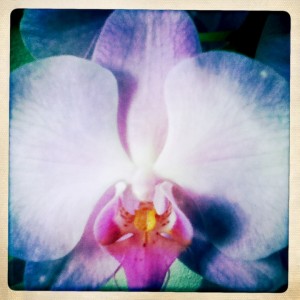“Pleasure is a freedom-song…” Kahlil Gibran
Is there room for pleasure in a day that is packed full of caregiving? Small pleasures can often go unnoticed. Tich Nhat Hanh describes the pleasure in acknowledging the absence of a toothache. These small pleasures have something in common with the bigger ones—like a great orgasm or finishing a marathon–when we seek pleasure we are often disappointed. When we open to pleasure’s arrival, and then allow it to recede in it’s own time, we are deeply nourished. Pleasure comes, barely visible in the dawn, when there is only quiet and a chance to close our eyes again for a blissful moment. Then, it is gone in a child’s cry of need. But, and this is a big but, if we can absorb the moment with every cell of our body and then release and remember it’s existence, more pleasure will accumulate. And it is this felt sense of pleasure that balances all the challenges, frustrations and weariness of parenting and gives us the strength to dig deep for kindness when we are depleted. “Pleasure is a freedom song, but it is not freedom.” Freedom is finding out we have more kindness to give than we ever imagined. Kindness for ourselves, our children and others.
This week’s practice.
On the yoga mat:
Starting in comfortable seated posture, scan your body for places that do not ache, places that feel warm or tingling. Observe any feelings of pleasure that exist. Watch them ebb and flow. Notice any gratitude that bubbles up. Move slowly onto hands and knees in cat/cow with attention to all parts of your body, find a rhythm that is uniquely yours. Allow your hips and shoulders to curve in towards each other on the exhale and open on the inhale. Breathe deeply, sigh if you want to. Are you trying to hold onto to pleasurable sensations? That is natural. On the next exhale, can you allow the experience to move through you? Carry this awareness into the rest of your practice, whether it is for 5 minutes or an hour and then off the mat and into your relationships.
Off the mat:
Experiment with this next time you take a shower. Feel the water flowing onto your body. Wash your body at your normal speed. Now, breathe deeply, slow down your movements as you soap your body. How does this feel different? As you wash your hair, massage your scalp slowly and tenderly. Can you smell the aroma of the shampoo; feel the sensations of your fingertips on your scalp? Is there more sensation and pleasure than if you move quickly? This probably took an extra 30 seconds.
Next time your child is in discomfort pick her up more slowly than usual, and watch how she is soothed and relaxed by your touch, notice feelings of satisfaction if they come. Marinate yourself in the experience. Then watch as satisfaction naturally recedes into the next moment, and the next.
Journaling:
Keep a journal of moments of pleasure, the external circumstances and the internal feelings. By giving these experiences a voice they are stored in your memory for stressful times, much like good nutrition is stored in your body for times of depletion.
Pleasure sought does not lead to happiness; but pleasure that is welcomed when it arrives, absorbed while it abides, remembered as a guest and released when it has passed, can be a source of true joy. What pleasures did you experience this week?
“May we all notice pleasure, may we abide in pleasure, may we all be at ease as pleasure recedes.”

I love reading your blog – And this entry really reflects what I’m working on lately. Letting go and opening myself up to the possibilities. Seeking, striving, desiring – versus being, opening, and mindfulness.
How wonderful, I hope that the practice helps you open to moments of pleasure, that may have otherwise gone unnoticed. Thanks for reading and sharing your thoughts.